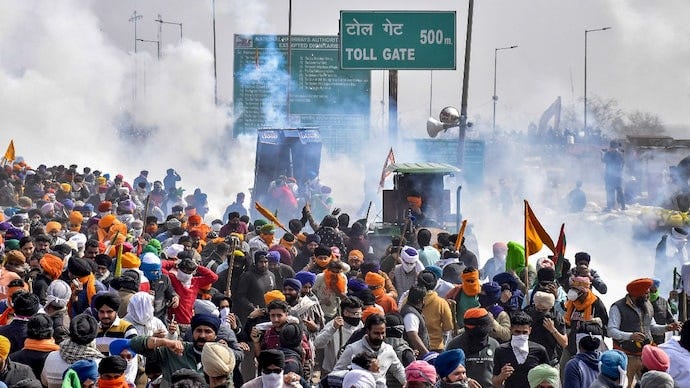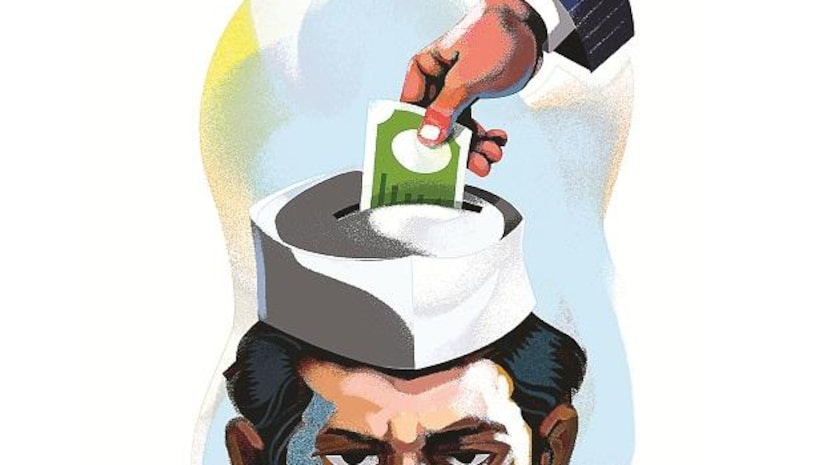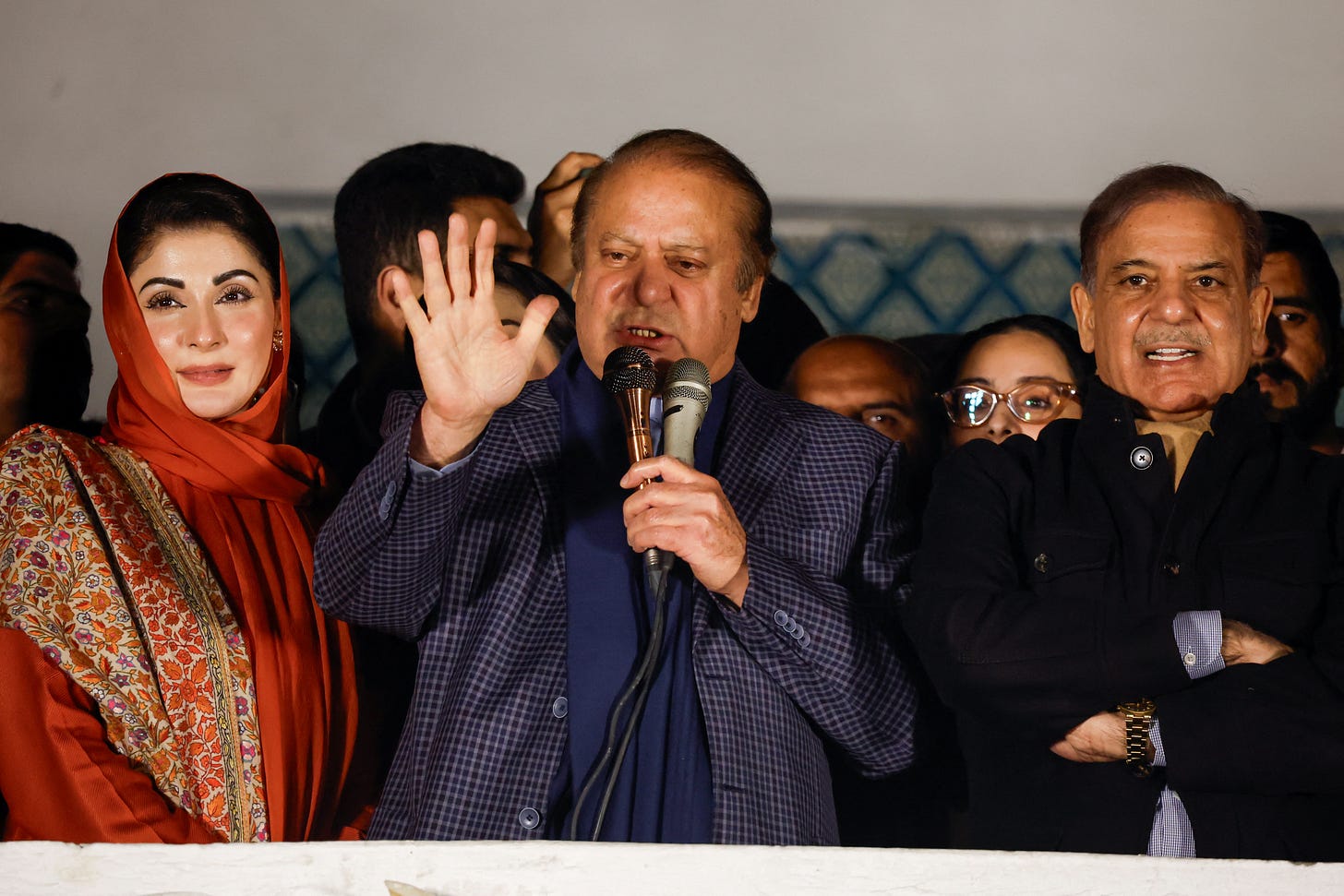Hey buddy, Glad to see you here! Welcome to Sunday, 25th February 2024’s Matters that Matter. Happy Reading!
1. Farmers on protest again
One of the key demands of farmers protesting at several places along the Punjab-Haryana border is guaranteed prices for their produce, otherwise known as MSP or Minimum Support Price. The agitation is now spreading to other areas.
This has been not just the case for India but countries globally. In India, the 12 demands include a law to guarantee MSP for all crops, full debt waiver for farmers and laborers, withdrawal of India from the World Trade Organization (WTO), and freezing of all free trade agreements (FTAs). The demand for MSP is not new. Govts at the center stay apprehensive about the idea while the same political parties use the topic as a way to lure farmers during elections.
In the fourth round of talks with protesting farmers, the Centre presented a proposal for crop diversification in Punjab, under which government-promoted cooperatives would offer five-year contracts to procure five crops — arhar, urad, lentil, maize, and cotton— at MSP with “no limit on the quantity” but the farmers rejected the Centre’s proposal.
Govt’s push is on account of India being dependent on imports of pulses to meet its domestic demand. Just a handful of states account for half of the country’s total production of pulses. Meanwhile, Paddy, which is grown in Punjab, is a guzzler of water—about 2,500 liters is needed to produce 1 kg of rice — and its cultivation has led to massive and indiscriminate withdrawal of groundwater in the state, which now stares at widespread desertification. Lack of crop rotation practice has also led to soil acidification due to the overuse of pesticides and fertilizers.
2. Upholding citizen’s right to know, SC strikes down electoral bonds scheme
The electoral bonds were interest-free bearer instruments that citizens or corporations could purchase from the State Bank of India, and then donate to political parties to fund election expenses, their identities hidden during the process. The scheme was introduced in the 2017 Union Budget to “cleanse the system of political funding in the country” and bring about “transparency in electoral funding”.
With this scheme, the government aimed to tackle both black money and donor anonymity. While tackling black money is fairly non-contentious, the government argued that donor anonymity is also a legitimate state interest since it seeks to give effect to a fundamental right — the right to privacy of the donor and shield them from potential retribution. On the extent of interference with the voter’s right to know, the government argued that the right to information only operates against information in the possession or in the knowledge of the state. It cannot operate for seeking information not in the knowledge or possession of the state.
Underling that the restrictions on free speech by the electoral bonds scheme are not “proportional” to its goal, a five-judge Constitution Bench of the Supreme Court, headed by the Chief Justice of India, unanimously struck down the scheme. CJI set the tone for the verdict by stressing that, “information about funding of political parties is essentialfor the effective exercise of the choice of voting.” In the name of informational privacy, electoral bonds restrict the Right to Information to an unacceptable extent. Studies show that the BJP garnered the lion's share of the bonds issued in the first tranche.
The court has also pointed out that the ability of a company to influence the electoral process through political contributions is much higher when compared to that of an individual—both in terms of the quantum of money contributed, and the purpose of such contributions. Attempts to make political funding more transparent must continue but there are means other than electoral bonds to achieve that purpose.
3. International Affairs
No end in sight: The UN Security Council failed again to adopt a resolution calling for a humanitarian ceasefire in the Israel-Hamas war after a veto by the US. Hamas chief Ismail Haniyeh said the Palestinian group would not accept anything less than a complete cessation of hostilities, Israeli withdrawal from Gaza, and “lifting of the unjust siege”. Israeli Prime Minister Benjamin Netanyahu responded by calling Hamas’s demands “delusional”.
The jailed Imran Khan scored a century without a bat: Independent candidates backed by his party, the Pakistan Tehreeke-Insaf (PTI), won a higher number of seats in Pakistan’s parliamentary elections 2024 (total 336 seats) than the other two main established parties that have the backing of the Pakistan Army. PML(N), led by three-time Prime Minister Nawaz Sharif, got 75 seats, while the PPP led by the Bhutto-Zardari family got 54 seats. Independently, none of the three parties can prove a simple majority. Such an outcome poses a vexed question: whom does New Delhi talk to in Pakistan? It may be futile to engage with the civilian government. In realpolitik terms, this means the most effective person to talk to is the Pakistan Army chief who wields influence over the political actors.
Putin prepares for elections: The death of Alexei Navalny, a vociferous Vladimir Putin critic and Russia’s most prominent opposition figure, has triggered widespread speculation of a Kremlin-orchestrated political assassination. Navalny was the last prominent Putin critic still in Russia. Others have either fled the country or died under mysterious circumstances. Putin heads to polls next month, all but unchallenged, as he seeks to extend his reign till 2030.
Meanwhile, as the second anniversary of its invasion of Ukraine draws closer, Russia has registered a big victory, capturing the town of Avdiivka. This is its most significant battleground gain after the city of Bakhmut in May last year.
Ukraine is falling short of arms and a key reason is that Republicans in the US House of Representatives are holding up a $95-billion foreign aid package, which includes USD 60 billion for Ukraine. In return for passing the package, the Republicans want stricter immigration rules at the US-Mexico border.
Some hardliners, like Marjorie Taylor Greene, want the US to stop financing someone else’s war, and push Ukraine towards negotiations instead.
This rings alarms for Europe since for decades, European countries have not spent much on defense, banking heavily on the US for security in the face of no serious threats. Now, as the Russia threat looms larger, many European nations are facing up to the fact that they need to allocate a larger portion of their GDP towards defense, and can’t depend entirely on the US.
Biden’s challenger Donald Trump has said outright he won’t help those who are not spending enough on security
- References and Excerpts from the Indian Express
If you read till the end, I am so proud of you for being a responsible and informed citizen of the world! Don’t forget to pass the baton to your friends by sharing this article.
Your suggestions are invaluable and would help Matters that Matter to improve and deliver to the community better. So, feel free to reach out! Until then, sending best wishes and love <3







After a long break...once again 360 degree informations.